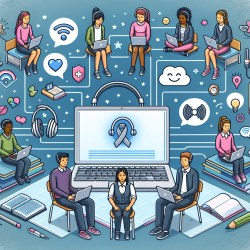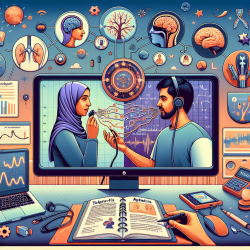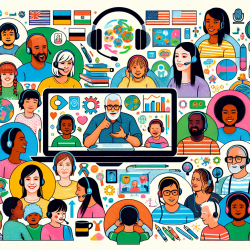Introduction
The COVID-19 pandemic has been a defining moment for healthcare systems worldwide, placing unprecedented stress on healthcare workers (HCWs). The research article "Defining effective strategies to prevent post-traumatic stress in healthcare emergency workers facing the COVID-19 pandemic in Italy" provides valuable insights into the mental health challenges faced by HCWs and outlines strategies to mitigate these effects. This blog aims to translate these findings into actionable steps for practitioners, especially those involved in online therapy services, to improve outcomes for healthcare workers.
Understanding the Challenges Faced by HCWs
The Italian healthcare system, already weakened by years of budget cuts, faced significant challenges during the COVID-19 pandemic. HCWs were exposed to extreme and prolonged work-related stress, increasing their risk for burnout and post-traumatic stress disorder (PTSD). Key risk factors included:
- Unpredictability of daily work and critical cases.
- Rapid influx of patients requiring difficult decision-making.
- Isolation from family and lack of social support.
- Fear of infecting loved ones and lack of protective equipment.
These factors contributed to a mental health crisis among HCWs, necessitating immediate and effective intervention strategies.
Effective Strategies for Mental Health Support
The research highlights several strategies that were implemented in Italy to support HCWs during the pandemic. These strategies can be adapted and applied in other contexts, including online therapy services:
- Psychological First Management Services: Establishing services with psychiatrists and psychologists to address hyperarousal, irritability, and psychological distress among HCWs.
- Technological Support: Using technology to facilitate communication between patients and their families, alleviating feelings of isolation and loneliness.
- Structured Communication Times: Defining specific times for HCWs to communicate with patients' families, helping them manage the emotional burden of conveying critical information.
- Screening Programs: Implementing programs to screen for acute stress, anxiety, and depressive symptoms, allowing for early intervention and support.
These strategies emphasize the importance of providing diversified and timely mental health support to HCWs, both during and after the crisis.
Implications for Online Therapy Services
For companies like TinyEYE that provide online therapy services, these findings underscore the need to tailor support to the unique challenges faced by HCWs. Practitioners can enhance their skills by:
- Developing Specialized Programs: Creating online therapy programs that address the specific mental health needs of HCWs, including stress management and coping strategies.
- Leveraging Technology: Utilizing teletherapy platforms to offer flexible and accessible mental health support, ensuring that HCWs can receive help regardless of their location or schedule.
- Promoting Resilience: Incorporating resilience-building techniques into therapy sessions to help HCWs cope with ongoing stressors and prevent long-term mental health issues.
By implementing these strategies, online therapy providers can play a crucial role in supporting the mental health of HCWs, ultimately improving their well-being and ability to care for patients.
Conclusion
The COVID-19 pandemic has highlighted the critical need for effective mental health support for healthcare workers. By learning from Italy's response and applying these strategies, practitioners can enhance their skills and improve outcomes for HCWs. As we continue to navigate the challenges of the pandemic, it is essential to prioritize the mental health of those on the front lines.
To read the original research paper, please follow this link: Defining effective strategies to prevent post-traumatic stress in healthcare emergency workers facing the COVID-19 pandemic in Italy.










